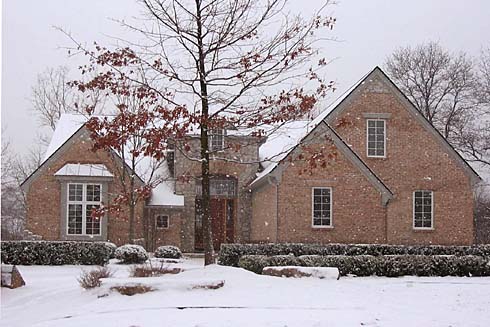DRY MORTGAGE
Understanding Dry Mortgages in Real Estate
In the realm of real estate financing, the concept of a dry mortgage, often referred to as a non-recourse loan, introduces an intriguing dynamic to the traditional borrower-lender relationship. This financial arrangement not only impacts the obligations of the borrower but also reshapes the risk landscape for both parties involved.
Unpacking the Essence of a Dry Mortgage
Limited Recourse
A defining characteristic of a dry mortgage is that the lender's claim is predominantly restricted to the collateralized property. In the event of a default, the lender's recourse is typically confined to the property itself, offering protection to the borrower's other assets.
Risk Distribution
Unlike traditional mortgages where the borrower's personal assets may be at risk in case of default, a dry mortgage shifts a significant portion of the risk to the lender. This redistribution of risk underscores the importance of thorough property evaluation and due diligence by the lender prior to extending such a loan.
Implications for Borrowers and Lenders
Borrower Perspective
For borrowers, the allure of a dry mortgage lies in the insulation of their personal assets from the fallout of a default. This can be particularly enticing for commercial real estate ventures, where the risk exposure of the borrower is strategically managed through non-recourse financing.
For borrowers, the allure of a dry mortgage lies in the insulation of their personal assets from the fallout of a default. This can be particularly enticing for commercial real estate ventures, where the risk exposure of the borrower is strategically managed through non-recourse financing.
Lender Considerations
Lenders, on the other hand, undertake a more calculated approach when offering non-recourse loans. The evaluation of the property's value, income-generating potential, and risk factors becomes pivotal in mitigating the inherent risks associated with limited recourse in the event of default.
Real-world Applications and Considerations
Commercial Real Estate
Dry mortgages are often prevalent in commercial real estate financing, where the scale and complexity of projects warrant a distinct risk allocation strategy. These loans provide a means for investors and developers to engage in substantial ventures while safeguarding their personal assets.
Risk Assessment
The non-recourse nature of dry mortgages necessitates a meticulous assessment of the property's viability, market conditions, and revenue projections. Lenders must diligently gauge the potential of the collateralized property to mitigate the risks associated with limited recourse in case of default.
Conclusion
The concept of a dry mortgage introduces a nuanced dimension to real estate financing, redefining the risk landscape for borrowers and lenders alike. By offering a layer of protection to the borrower's personal assets and necessitating a rigorous risk assessment for lenders, non-recourse loans embody a strategic and calculated approach to property-backed financing. Understanding the implications and applications of dry mortgages is essential for navigating the intricacies of real estate finance and investment.
MORE REAL ESTATE TERMS
A, B, C, D, E, F, G, H, I, J, K, L, M, N, O, P, Q, R, S, T, U, V, W, X, Y, Z
Featured New Home

Featured Mortgage Brokers
- VENTA FINANCIAL GROUP INC, LAS VEGAS, NV
1300 S JONES BLVD STE 150
LAS VEGAS, NV 89146 - FIRST PRIORITY FINANCIAL INC, ROSEVILLE, CA
1050 OPPORTUNITY DR STE 145
ROSEVILLE, CA 95678 - FIRST HOME MORTGAGE CORP, MILLERSVILLE, MD
8638 VETERANS HWY STE 300
MILLERSVILLE, MD 21108 - EMBRACE HOME LOANS INC, MIDDLETOWN, RI
25 ENTERPRISE CTR
MIDDLETOWN, RI 2842 - ENVOY MORTGAGE LTD, COLORADO SPRINGS, CO
6760 CORPORATE DR STE 130
COLORADO SPRINGS, CO 80919